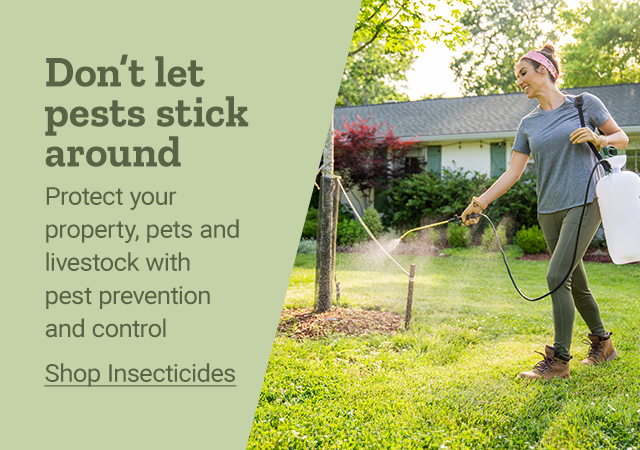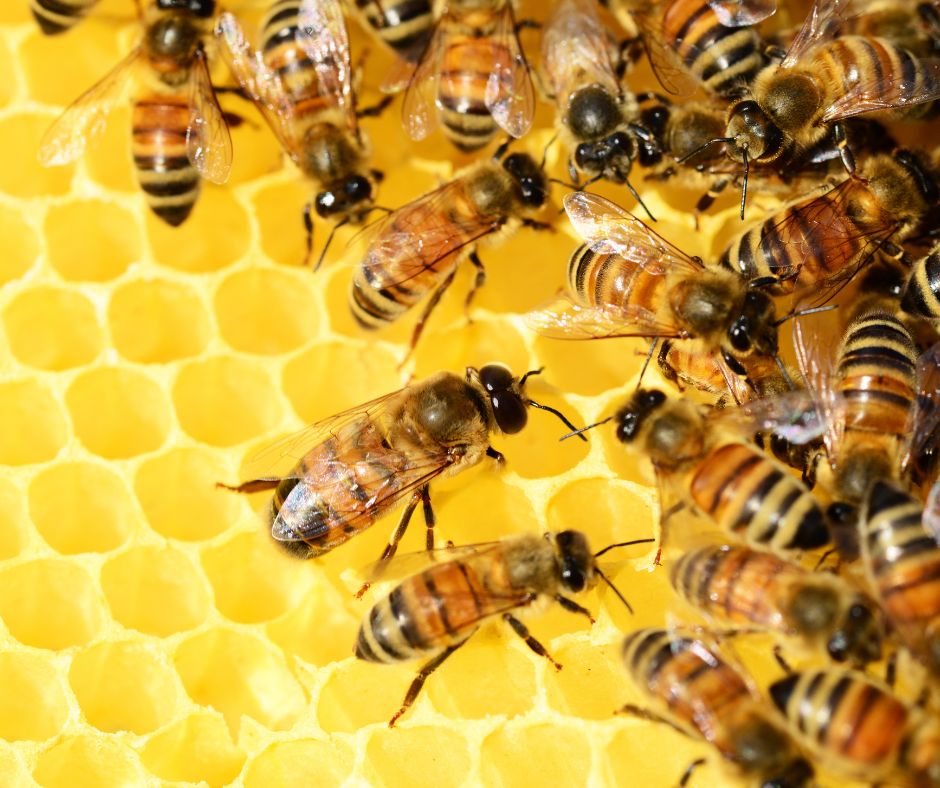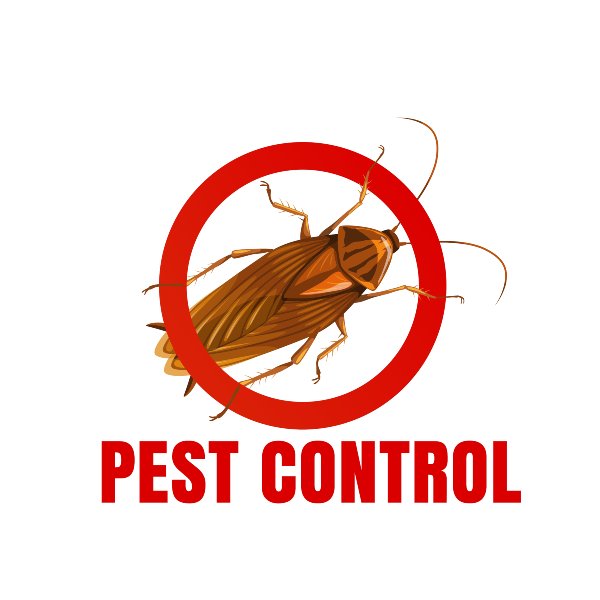Trusted Rodent Control Port Charlotte to Keep Your Property Pest-Free
Wiki Article
Discover the Importance of Pest Control in Keeping a Healthy Setting and Treatment Strategies
The Role of Pests in Ecological Communities
Parasites, commonly checked out entirely as nuisances, play a complex function in communities that is important for keeping eco-friendly balance. They contribute dramatically to different ecological procedures, including pollination, nutrient biking, and insect control. Lots of insect types, such as butterflies and bees, are crucial pollinators for a large range of plants, which in turn sustains biodiversity and food production.In addition, insects function as victim for numerous predators, creating a critical web link in food webs. This interdependence ensures the survival of different varieties and assists manage populations within ecological communities (Termite treatment Port Charlotte). Additionally, decomposer parasites, such as specific beetles and fungis, are important in damaging down organic matter, hence enriching dirt and facilitating nutrition recycling.
Conversely, while parasites can be valuable, their overpopulation or intrusion right into non-native environments may interfere with these eco-friendly features. This complexity underscores the relevance of comprehending insect dynamics, as efficient pest monitoring methods need to think about both their environmental duties and possible influence on human activities. Balancing pest existence while lessening injury is crucial for preserving the integrity of environments and making certain farming productivity.
Health Risks Associated With Insects
The existence of bugs in different settings expands past their eco-friendly duties, as they additionally posture substantial wellness threats to pets and people. Numerous insects, including rodents, parasites, and insects, are providers of diseases that can have serious health effects. Rats are recognized to transfer hantavirus and leptospirosis, both of which can lead to severe respiratory and kidney problems, respectively.Pests such as ticks and mosquitoes are notorious for spreading out vector-borne illness like malaria, dengue high temperature, and Lyme illness. These diseases can result in high morbidity and death rates, particularly in at risk populaces. Additionally, pests like roaches and insects can intensify allergic reactions and bronchial asthma, contributing to respiratory system issues in individuals, especially those with pre-existing problems.
Moreover, the presence of parasites can cause psychological anxiety and discomfort, impacting overall wellness. Contamination of food and surface areas by bug droppings and stays can cause foodborne health problems, highlighting the importance of keeping hygienic problems. As a result, comprehending the health and wellness risks related to bugs is critical in acknowledging the need of effective parasite management methods to safeguard human and animal wellness.

Advantages of Reliable Bug Control
Effective parasite control is necessary for preserving a safe and healthy and balanced atmosphere, as it regularly minimizes the many dangers associated with bug infestations. One of the key benefits of reliable insect management is the decrease of health dangers.Additionally, reliable insect control safeguards property and structures from damages. Numerous pests, like termites and woodworker ants, can cause substantial structural damages that might need pricey repair services. By proactively handling these services, problems and property owners can shield their financial investments.
Another considerable benefit is the enhancement of total top quality of life. A pest-free environment adds to mental wellness and lowers tension connected with invasions. In addition, effective insect control promotes a much safer atmosphere for youngsters and pet dogs, ensuring that homes remain shelters cost-free from hazardous chemicals and disease-causing microorganisms.
Usual Bug Control Methods

In the realm of parasite administration, various strategies are utilized to combat problems efficiently. These techniques can be generally categorized into 3 main strategies: cultural, mechanical, and chemical controls.
Social control includes modifying techniques to minimize insect survival, facility, and reproduction. This might include plant rotation, appropriate sanitation, and environment manipulation, which collectively produce an environment much less conducive to pest spreading.
Mechanical control utilizes physical approaches to eliminate parasites (Termite treatment Port Charlotte). Techniques such as vacuum cleaners, catches, and barriers are typically made use of to straight remove parasites from an area. This approach is particularly reliable for managing rats and pests without the use of unsafe chemicals
Chemical control involves the application of pesticides to handle bugs. These materials can be categorized into fungicides, pesticides, and herbicides, each targeting specific kinds of insects. Termite treatment Port Charlotte It is essential to use these chemicals sensibly, adhering to security standards and guidelines to decrease possible injury to non-target varieties and the environment.
Each pest control strategy has its constraints and benefits, and often, an integrated approach combining multiple methods yields the very best lead to maintaining a pest-free environment.
Lasting Parasite Monitoring Practices
Lasting bug administration methods include a variety of techniques made to reduce ecological influence while successfully managing insect populations. These practices focus on the usage of eco-friendly methods over chemical pesticides, thereby reducing the threat of damage to non-target types, consisting of beneficial pests, wild animals, and people.Integrated Insect Management (IPM) is a keystone of sustainable practices, incorporating organic, cultural, mechanical, and chemical tactics to take care of bugs. Organic control includes introducing all-natural predators or bloodsuckers to suppress parasite populaces. Cultural techniques, such as crop turning and polyculture, disrupt pest life cycles and boost ecosystem strength.
Mechanical techniques, such as obstacles or traps, can properly stop pest gain access to without chemical treatment. Additionally, keeping healthy communities with proper soil monitoring, plant health and wellness, and biodiversity can normally reduce parasite issues.
Education and learning and recognition are important parts, empowering people and areas to recognize parasite threats early and carry out preventive steps. Termite treatment Port Charlotte. By cultivating a holistic method that stabilizes pest control with environmental honesty, lasting pest administration techniques not just safeguard frameworks and plants but likewise add to a much healthier environment for future generations
Conclusion

Understanding the health and wellness threats linked with pests is crucial in recognizing the need of efficient pest administration strategies to secure animal and human health.
Efficient parasite control is vital for keeping a healthy and risk-free environment, as it constantly minimizes the various dangers linked with pest infestations.Integrated Bug Monitoring (IPM) is a keystone of lasting methods, combining biological, cultural, mechanical, and chemical strategies to handle insects. By understanding the role of pests, acknowledging connected wellness threats, and employing diverse treatment techniques, a sustainable strategy to pest management can be achieved. Integrated Pest Management (IPM) stresses an all natural method that minimizes injury to beneficial organisms while effectively controlling pest populations.
Report this wiki page